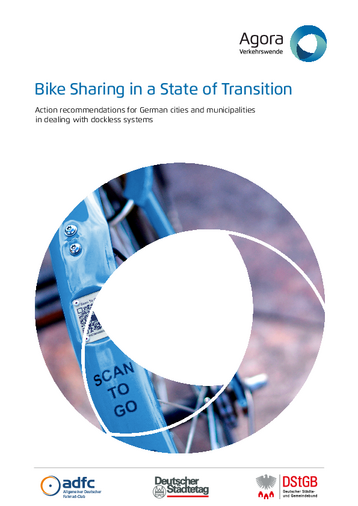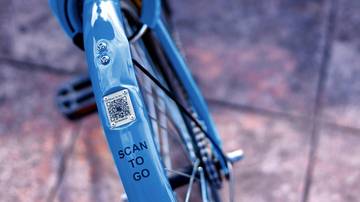It is a normal weekday in 2013 in Beijing: We are sitting in a taxi headed to the Ministry of Transport, to take part in an exchange between Chinese and German experts. The topic to be discussed is the promotion of bicycle transport. Our taxi inches its way through the congested streets. The driver occasionally makes use of the “Fuˇlù”, the wide bike lanes that are typical of China. But bicycles can hardly be found in these lanes anymore. They have long been crowded out by cars and electric scooters. What was once the bicycle kingdom is now the kingdom of the automobile.
When we visited Beijing the next time in 2017, we once again found ourselves stuck in traffic. The air had not improved noticeably. But flashing in between the otherwise solid line of cars were countless colorful bicycles. What had happened? Within a period of only two years, China’s internet giants had founded companies offering large-scale dockless bike sharing in the metropolises of East Asia. What had started as a pilot project on the campus of Peking University had turned into a billion-dollar business within a short period of time. These companies, which received immense amounts of venture capital, now supply millions and millions of shared bikes in over 200 Chinese cities, bikes that are used by several hundred million customers. This unprecedented development is reflected in Chinese traffic statistics: Within the past two years, in Beijing’s modal split, the bicycle has climbed from five to over eleven percent, while automobile traffic has declined by more than three percent.
The growth of the bike sharing business has not been restricted to China. The launch of the first companies in German cities in 2017 was immediately accompanied by controversial discussions. The situation beyond Germany is similar. Today there is hardly a European capital that cannot be explored on a dockless shared bike.
The initial public response was often marked by skepticism: These bicycles, according to some critical voices, would “clutter up” the limited public space in our city centers, while our own station-based bike sharing systems would suffer under the competition with the new bike providers, which for the most part do not coordinate their activities with cities.
On the other hand, the companies offering dockless bike sharing provide an opportunity to promote and bolster bicycling as part of a larger strategy for sustainable urban transport. The significance of the bicycle as a means of transport has grown enormously, especially over the past few years. One indication of this is the growing number of initiatives that are calling for referendums in support of bicycling.
Against this backdrop, we have been looking – as have many of the country’s municipalities – at the question of whether and how these new dockless bike sharing services can make a contribution to a more sustainable urban transport system. We are therefore happy, together with our partners, the German Cyclists‘ Association (ADFC), the Association of German Cities (DST) and the German Association of Towns and Municipalities (DStGB), to present to you this publication “Bike Sharing in a State of Transition”, a first guidebook on how to deal with the new mobility services.
The guidebook is directed primarily at stakeholders in politics and municipal administration. It is meant to show how cities and municipalities and dockless bike sharing providers can work together to make use of the opportunities presented by these new mobility services and minimize risks through cooperation.
Due to the dynamic development of the new bike sharing services, we see this guidebook as a living document that can serve as a basis for further discussion. The four publishers of this guidebook also see it as a foundation for dialogue with mobility companies, which we intend to expand on in the coming months, in part to decide if and when the guidebook should be updated.
Just three years ago, who could’ve imagined the pace at which providers from abroad would advance the development of dockless bike sharing? It seems that the pressing nature of the traffic problem in the metropoles of Asia can be a source of disruptive innovation. Dockless bike sharing is likely to be only a first harbinger of new mobility concepts emerging from China. It has the potential to have a major impact on the debate in Germany.
With this in mind, we hope that this publication will be read with interest, and that it can make a contribution to the discussion. Your comments, suggestions and criticisms are appreciated!




